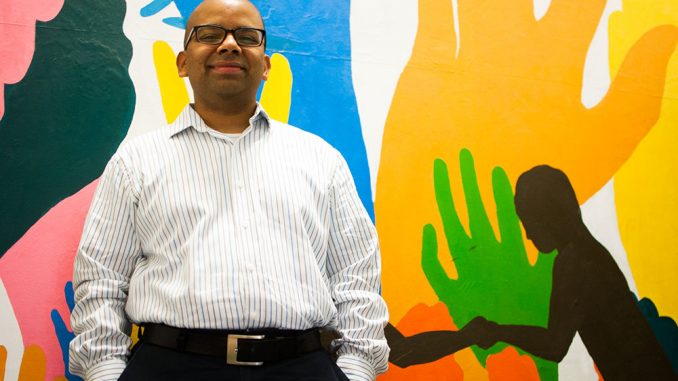
There’s more to history than what’s in the textbooks.
South Asians first began arriving to the United States in large numbers during the late 1800s working on farms, lumberyards, and mills in the Pacific Coasts. Bengali traders also traveled towards New York City, Philadelphia, Baltimore and New Orleans.
These are stories that Samip Mallick hopes to maintain and preserve through the South Asian American Digital Archive (SAADA), a nonprofit organization based in Philadelphia that has built an archive that shares little known stories of people of South Asian heritage in the United States.
The organization documents those who trace their heritage to Bangladesh, Bhutan, India, Maldives, Nepal, Pakistan and Sri Lanka, among others.
Its conception began in 2008 in Chicago when Mallick met his colleague and SAADA’s co-founder, Michelle Caswell, who was then completing her Masters in Archival Studies at the University of Wisconsin – Milwaukee. Caswell is now an Assistant Professor of Archival Studies at UCLA.
“We were talking about South Asian American history and how this community’s history wasn’t being documented by any existing archives or museums and felt that the history of the South Asian American community was in danger of being lost,” Mallick said.
SAADA’s website features material on Dalip Singh Saund, the first Indian American elected into the House of Representatives which happened in 1956 and Anandibai Joshi, who came to Philadelphia in 1883, and in 1886 was the first Indian woman to complete her medical degree in the United States.
Letters and documents of the Gadar Party can also be found in SAADA’s archive. The Gadar Party was an organization founded in 1913 and based in San Francisco, comprised of early immigrants in the U.S., who sought to gain India’s independence from the shackles of British tyranny through armed revolution.
Most of these materials, Mallick said, have been available through working with people who have donated materials from their parents’ or grandparents’ lives.
“They’ve inherited all these materials and now they’re just sitting in their houses and haven’t really been seen publicly,” Mallick said. “Because we don’t take the physical copy people are more willing to work with us.”
Rabia Syed, a Temple alumna of Pakistani descent, has been a volunteer with SAADA since August of 2012 and has served on the organization’s Board of Directors since July 2013. Syed believes that there is a growing South Asian American presence in the past decade. Stereotypes are often generated with minority groups, Syed said. An organization like SAADA will serve as a platform that will create a better understanding of South Asian contributions to the United States of America.
“When I was in high school, there wasn’t a concept of South Asian Americans in the media,” Syed said. “People our age are starting to mobilize in a better way. It’s not where it needs to be and it’s definitely becoming a lot better.”
Syed believes in SAAD’s mission.
“There is no other organization that does this work,” Syed said.
Bob Chacko, who has donated copies to SAADA of his father’s magazine “Rajani,” a Malayalam language arts and culture magazine published in Philadelphia from 1986 to 1997, said that an organization like this will allow him to teach his children about these iconic South Asian American figures.
“There isn’t anything that exists like this today for South Asian society,” Chacko said. “If you think of it in the long term, things could be lost overtime and eventually it kind of disappears.”
SAAD’s meaning to Chacko extends farther than today’s generation.
“The permanency of this knowledge in some meaningful way is significant to our society,” Chacko said. “I want my son or grandson to have this information available.”
SAADA recently launched a new online forum entitled the “First Days Project” that showcases stories told by individuals of South Asian heritage about their first day in the United States. SAADA is also in the process of creating a walking tour that focuses on South Asian American history in Philadelphia.
Mallick said the South Asian American Digital Archive will uncover stories that have been largely forgotten in American history. He said he hopes to continue his work with SAADA, ensuring the history that his organization is documenting will be available for future generations.
“We’re not just trying to document these materials for research purposes,” Mallick said. “But also to raise awareness about these stories and to make sure people feel inspired by them and realize that to get to where we are as a community as South Asians in this country that there are people who helped to pave the way for us to do that.”
Naveed Ahsan can be reached at naveed.ahsan@temple.edu.


Be the first to comment